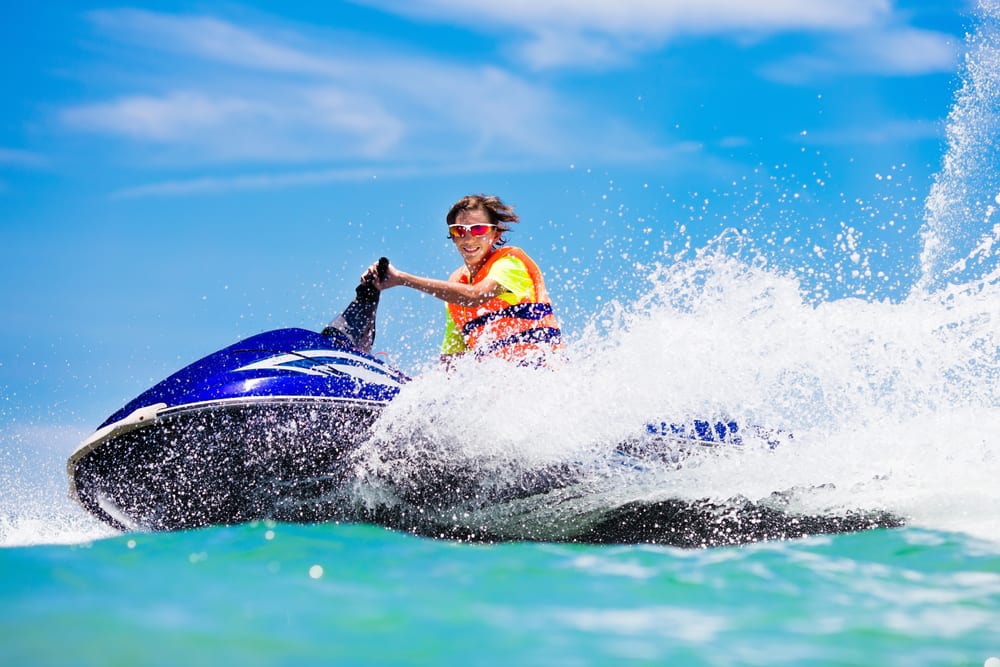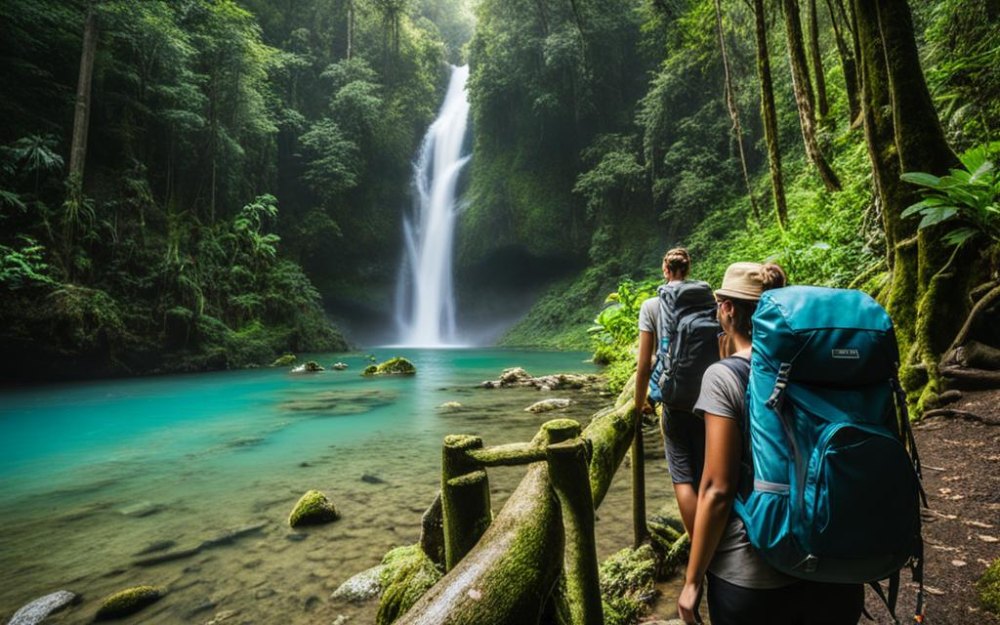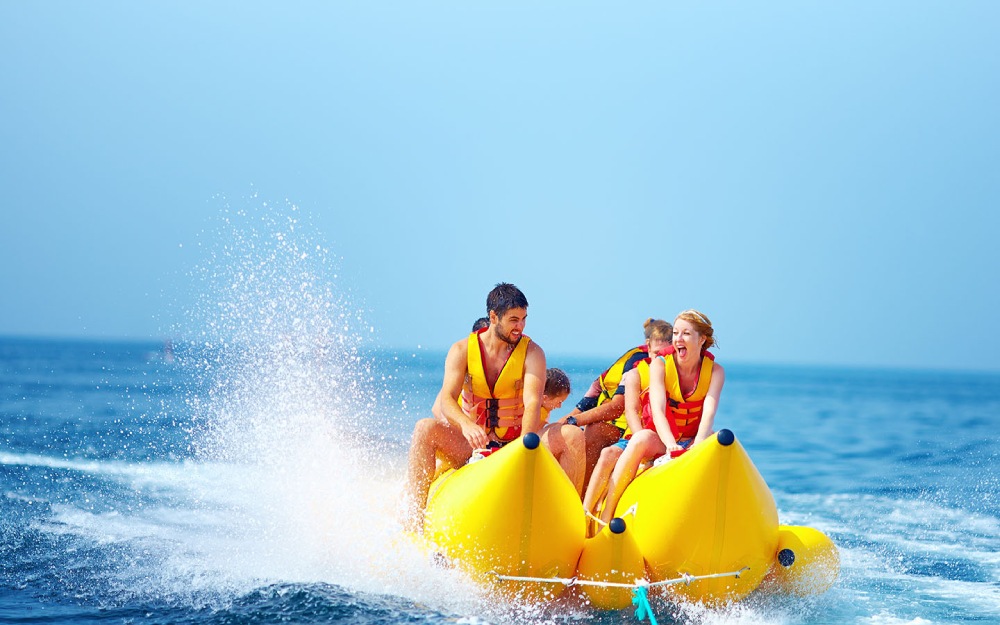Water sports have long been synonymous with fun, adventure, and the thrill of the great outdoors. From kayaking and scuba diving to surfing and stand-up paddleboarding, these activities allow enthusiasts to connect with nature and explore the beauty of lakes, rivers, and oceans. However, as environmental concerns escalate due to climate change and pollution, the need for sustainable practices in water sports has become imperative. For Indian water sports enthusiasts, this presents a unique opportunity to embrace eco-friendly innovations and ensure that our beloved activities do not come at the cost of our planet.
In this comprehensive guide, we will explore the current state of water sports in India, the importance of sustainable practices, and innovative solutions that can help shape the future of water sports while promoting eco retreats and preserving our aquatic ecosystems.
1. The Current State of Water Sports in India
India, with its vast coastline of over 7,500 kilometers, numerous rivers, and countless lakes, offers a plethora of opportunities for water sports. The country boasts a rich variety of aquatic activities, attracting both local and international tourists. Some of the popular water sports in India include:
- Kayaking: Popular in regions like Kerala, Goa, and Uttarakhand, kayaking offers a unique way to explore rivers and backwaters.
- Scuba Diving: The Andaman and Nicobar Islands, Lakshadweep, and even parts of Goa offer incredible diving spots, showcasing vibrant marine life and coral reefs.
- Surfing: With a growing surfing culture, beaches like Arugam Bay in Sri Lanka and the beaches of Karnataka are emerging as hotspots.
- Stand-Up Paddleboarding: This activity has gained popularity in coastal towns and is often combined with yoga sessions for a holistic experience.
1.1 Challenges Facing Water Sports
While the potential for water sports in India is immense, there are significant challenges that threaten their sustainability:
- Pollution: Water bodies across India are facing severe pollution due to industrial waste, plastic, and untreated sewage, negatively impacting aquatic ecosystems.
- Climate Change: Rising sea levels, increasing temperatures, and erratic weather patterns can alter water sports conditions and threaten coastal areas.
- Overcrowding: Popular destinations often experience overcrowding, leading to environmental degradation, disruption of local ecosystems, and a diminished experience for visitors.
2. The Importance of Sustainable Practices in Water Sports
Sustainable practices in water sports are essential to preserving natural resources, protecting ecosystems, and ensuring that future generations can enjoy these activities. Here’s why adopting sustainable practices is critical:
2.1 Protecting Aquatic Ecosystems
Water sports can negatively impact marine environments through activities such as anchoring boats on coral reefs, disturbing wildlife, and pollution from equipment. Sustainable practices help mitigate these impacts and protect fragile ecosystems.
Also Read- 10 Unique Beach Activities You’ve Never Tried Before
2.2 Promoting Responsible Tourism
With the rise of eco-conscious travelers, there is a growing demand for responsible tourism options. Implementing sustainable practices not only enhances the reputation of water sports operators but also attracts a clientele that values eco-friendly experiences.
2.3 Supporting Local Communities
Sustainable water sports practices often involve collaboration with local communities, ensuring that they benefit from tourism. This can create jobs, support local economies, and foster a sense of ownership and responsibility for natural resources.
2.4 Enhancing the Experience for Participants
Sustainable practices often lead to cleaner, healthier environments, which enhance the overall experience for water sports enthusiasts. Engaging in activities that prioritize sustainability allows participants to connect more deeply with nature.
3. Innovative Solutions for Sustainable Water Sports
To create a more sustainable future for water sports in India, various innovative solutions and practices are being adopted. Here are some of the most promising developments:
3.1 Eco-Friendly Equipment
The demand for eco-friendly water sports equipment is on the rise. Here are some innovations making waves in the industry:
- Biodegradable Kayaks: Several companies are developing kayaks made from biodegradable materials that reduce plastic pollution.
- Recyclable Surfboards: Brands like Sustainable Surf have created surfboards from recycled materials, promoting a circular economy.
- Eco-Friendly Wetsuits: Wetsuits made from natural rubber or recycled materials are emerging, reducing the reliance on petroleum-based neoprene.
3.2 Green Certifications for Water Sports Operators
Certifications like the Green Globe and EarthCheck help water sports operators adopt sustainable practices. These certifications often include measures such as waste reduction, energy efficiency, and responsible resource management.
3.3 Community-Led Conservation Efforts
Involving local communities in conservation efforts helps ensure the long-term sustainability of water sports. Initiatives like beach clean-ups, coral reef restoration projects, and wildlife protection programs can empower communities and promote environmental stewardship.
3.4 Technology and Innovation
Technology is playing a pivotal role in promoting sustainable water sports. Innovations include:
- Drones for Monitoring: Drones can be used to monitor water quality, assess the health of aquatic ecosystems, and manage human activity in sensitive areas.
- Apps for Eco-Friendly Navigation: Mobile applications that provide information on sustainable practices, local conditions, and protected areas can help water sports enthusiasts make responsible choices.
4. Promoting Eco Retreats through Sustainable Water Sports
Eco retreats that integrate sustainable water sports into their offerings are becoming increasingly popular in India. These retreats provide immersive experiences that combine relaxation with adventure while prioritizing environmental sustainability. Here are some notable eco retreats that promote water sports:
4.1 V Resorts in the Nilgiris
V Resorts operates eco-friendly accommodations across India, with a focus on sustainable practices. Their retreat in the Nilgiris offers various water sports, including kayaking and fishing, while promoting responsible tourism practices and supporting local communities.
4.2 The Lalit Resort & Spa Bekal, Kerala
Located along the stunning coastline of Kerala, this eco retreat offers water sports such as kayaking, paddleboarding, and fishing. The resort emphasizes sustainability through water conservation practices and supporting local fishermen.
4.3 Nehru Boat Race Resort, Kerala
Known for the famous Nehru Trophy Boat Race, this eco retreat offers guests the chance to participate in traditional boat racing while promoting the importance of preserving the backwaters of Kerala. The resort encourages eco-friendly practices among its guests and supports local communities.
Also Read- Best Eco Retreats for Adventure Seekers
4.4 Blue Yonder in Goa
This eco retreat focuses on experiential travel and offers a range of water sports, including snorkeling and kayaking. Blue Yonder emphasizes community engagement and sustainable tourism practices, ensuring that both the environment and local residents benefit.
5. The Role of Education and Awareness in Sustainable Water Sports
Education and awareness are critical to promoting sustainable practices in water sports. Here are some initiatives aimed at fostering a culture of sustainability among enthusiasts:
5.1 Workshops and Training Programs
Many organizations are conducting workshops and training programs that educate water sports operators and enthusiasts about sustainable practices. These programs often cover topics such as waste management, responsible navigation, and the ecological significance of marine environments.
5.2 Awareness Campaigns
Social media campaigns, community outreach programs, and partnerships with schools can help raise awareness about the importance of sustainability in water sports. Engaging storytelling and highlighting success stories can inspire individuals to adopt eco-friendly practices.
5.3 Collaborations with NGOs
Water sports operators can partner with non-governmental organizations (NGOs) that focus on environmental conservation. Such collaborations can lead to joint initiatives, including clean-up drives and educational programs, benefiting both the community and the environment.
6. Tips for Indian Water Sports Enthusiasts: Practicing Sustainability
As water sports enthusiasts, there are several practical steps you can take to contribute to a more sustainable future. Here are some tips to keep in mind:
6.1 Choose Eco-Friendly Operators
When selecting a water sports operator, look for those who prioritize sustainability. Check for certifications, inquire about their practices, and support businesses that are committed to protecting the environment.
6.2 Minimize Plastic Usage
Reduce plastic waste by carrying reusable water bottles, bags, and utensils. Avoid single-use plastics, such as straws and cutlery, which can contribute to pollution in water bodies.
6.3 Participate in Clean-Up Initiatives
Join local beach or river clean-up efforts. Engaging in community clean-ups not only helps improve the environment but also fosters a sense of community and responsibility toward nature.
6.4 Educate Others
Share your knowledge about sustainable water sports practices with friends, family, and fellow enthusiasts. The more people understand the importance of sustainability, the greater the collective impact will be.
6.5 Respect Wildlife and Natural Habitats
While enjoying water sports, maintain a safe distance from wildlife and avoid disturbing natural habitats. Follow guidelines and regulations set by local authorities to protect fragile ecosystems.
Conclusion: Embracing the Future of Water Sports in India
The future of water sports in India lies in the hands of enthusiasts who prioritize sustainability and eco-friendly practices. By embracing innovative solutions, supporting eco retreats, and educating ourselves and others, we can create a positive impact on the environment while enjoying the thrill of aquatic adventures.
Also Read- Take A Glamping Trip In Odisha To Have An Experience Of A Lifetime!
As we move forward, it is crucial for both operators and enthusiasts to work together to ensure that our oceans, rivers, and lakes remain pristine for generations to come. By adopting sustainable practices, we not only enhance our experiences but also contribute to the preservation of India’s natural beauty, making water sports a truly enriching and responsible pursuit.
Whether you’re kayaking through the backwaters of Kerala, scuba diving in the Andaman Islands, or surfing along the Karnataka coast, let’s make every splash count for a sustainable future!




